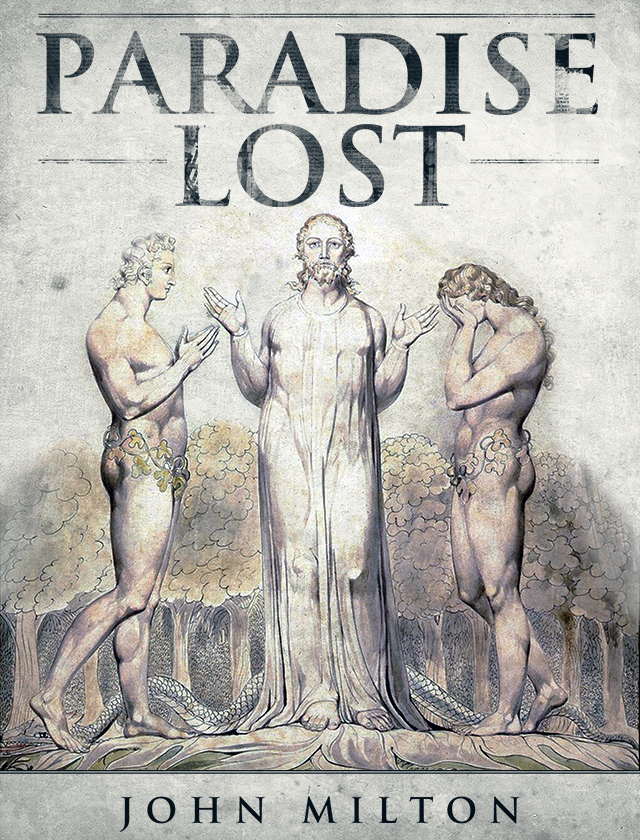Paradise Lost
by John Milton
Book 1
Book 1 Summary
In the tradition of epic poets such as Homer and Virgil, Milton opens the poem with an invocation of the Muse. Milton specifically addresses a “Heav’nly Muse,” indicating that his work is firmly grounded in Christianity. He further calls upon the Holy Spirit—one of the Trinitarian aspects of God—to “instruct” his writing. Milton also presents the purpose of his epic: to justify God’s actions, or “ways,” to humanity. Next, Milton announces his intention to describe how it was that Adam and Eve fell from God’s favor and sacrificed paradise. He says that a “Serpent”—meaning Satan—“seduced” the first man and woman into disobeying God.
The action of the poem now begins, in medias res, with Satan and his followers–all former angels cast down from Heaven—chained to a great burning lake whose flames produce darkness rather than light. Before his rebellion, Satan had been known as Lucifer, and he was God’s highest archangel. In his pride he led a war against Heaven, and has now been defeated. Satan speaks to his second-in-command, Beelzebub, observing how Beelzebub has lost his brightness. Likewise, all of the former angels have lost the beautiful appearance they had when in Heaven. Nonetheless, Satan states that he does not repent his actions, and intends to wage “eternal war” against God, his enemy. Satan welcomes the horrors of the new world in which they find themselves, and proudly declares that it is “Better to reign in Hell than serve in Heav’n” (1. 263). Beelzebub encourages Satan to regroup his forces, assuring the “Arch-Fiend” that the other fallen angels will regain their strength once they hear Satan’s voice.
Satan spreads his huge wings and manages to free himself from his bonds. He reaches the shore of the fiery lake, where his wounded followers lie in agony. At the summons of their master, the fallen angels are ashamed of their weakness....
Sign up to continue reading Book 1 >